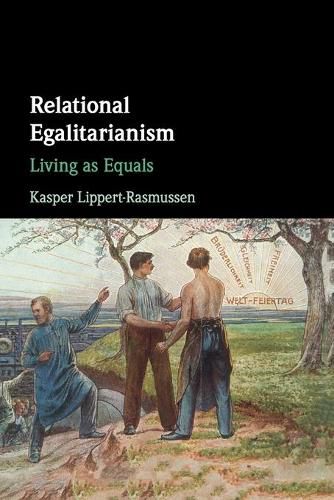Readings Newsletter
Become a Readings Member to make your shopping experience even easier.
Sign in or sign up for free!
You’re not far away from qualifying for FREE standard shipping within Australia
You’ve qualified for FREE standard shipping within Australia
The cart is loading…






Over the last twenty years, many political philosophers have rejected the idea that justice is fundamentally about distribution. Rather, justice is about social relations, and the so-called distributive paradigm should be replaced by a new relational paradigm. Kasper Lippert-Rasmussen seeks to describe, refine, and assess these thoughts and to propose a comprehensive form of egalitarianism which includes central elements from both relational and distributive paradigms. He shows why many of the challenges that luck egalitarianism faces reappear, once we try to specify relational egalitarianism more fully. His discussion advances understanding of the nature of the relational ideal, and introduces new conceptual tools for understanding it and for exploring the important question of why it is desirable in the first place to relate as equals. Even severe critics of the distributive understanding of justice will find that this book casts important new light on the ideal to which they subscribe.
$9.00 standard shipping within Australia
FREE standard shipping within Australia for orders over $100.00
Express & International shipping calculated at checkout
Over the last twenty years, many political philosophers have rejected the idea that justice is fundamentally about distribution. Rather, justice is about social relations, and the so-called distributive paradigm should be replaced by a new relational paradigm. Kasper Lippert-Rasmussen seeks to describe, refine, and assess these thoughts and to propose a comprehensive form of egalitarianism which includes central elements from both relational and distributive paradigms. He shows why many of the challenges that luck egalitarianism faces reappear, once we try to specify relational egalitarianism more fully. His discussion advances understanding of the nature of the relational ideal, and introduces new conceptual tools for understanding it and for exploring the important question of why it is desirable in the first place to relate as equals. Even severe critics of the distributive understanding of justice will find that this book casts important new light on the ideal to which they subscribe.